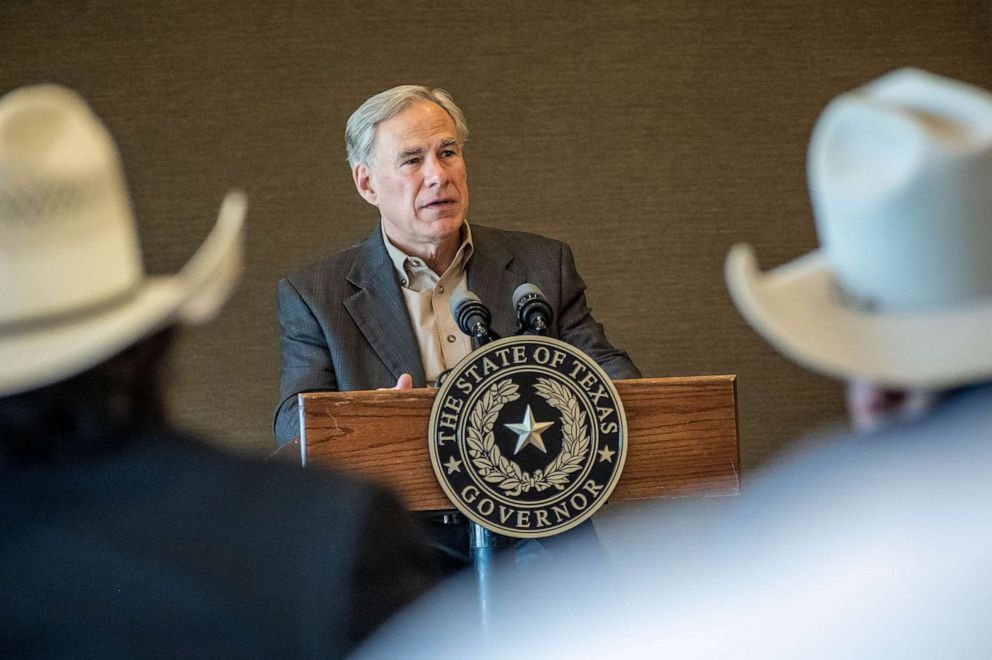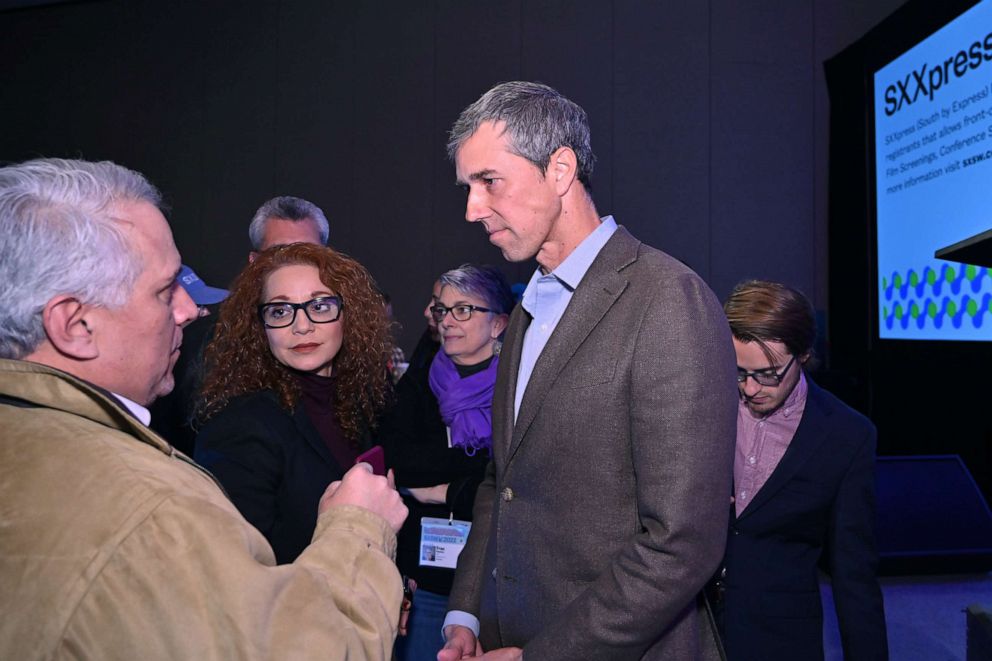Red states push along fresh fault lines: The Note
Two upcoming gubernatorial races could be platforms for national campaigns.
The TAKE with Rick Klein
They're getting the fights they want -- even if they won't win them all and even if they risk prompting a backlash in the process.
The parade of red state governors and legislators pushing their advantage on a range of significant social issues has continued unabated as legislative sessions begin to wrap and primary season starts to heat up.
The monthslong focus on trans athletes and critical race theory has been supplemented by a swath of red states imposing new anti-abortion laws, including in Kentucky (over a Democratic governor's veto) and Florida (with a Republican governor's signature) this week.

Florida Gov. Ron DeSantis is also threatening a battle over the so-called "Don't Say Gay" law with Disney, the parent company of ABC News. And his aggressive efforts to redraw his state's congressional districts in the special legislative session next week could dismantle majority-Black districts -- as well as virtually wipe out potential Democratic gains in redistricting across other states.
Texas Gov. Greg Abbott, meanwhile, has drawn the attention of the White House with his truck inspections at the border and his unusual move to bus migrants to Washington. The latter action drew a cheeky response from White House press secretary Jen Psaki, who said it was "nice" of Texas to give them a lift after they were processed by Customs and Border Protection.
Both DeSantis and Abbott are up for reelection this year, in races that could provide platforms for national campaigns. The terrain they're looking to contest is telling for their view of the electorate both in their states and well beyond.
The RUNDOWN with Averi Harper
The Republican National Committee will reportedly require GOP presidential candidates to pledge that they will only participate in party-sanctioned debates.
It follows the party's January threat to "prohibit" future Republican nominees from participating in presidential debates because of what RNC Chair Ronna McDaniel described as "bias," citing the party's unanswered calls for changes to how debates are run and how the Commission on Presidential Debates is governed.
"We are going to find newer, better debate platforms to ensure that future nominees are not forced to go through the biased CPD in order to make their case to the American people," McDaniel said in a statement.

The RNC's declaration is misleading, because the party can't actually "withdraw" from the Commission on Presidential Debates as it is not a part of CPD in the first place. Officials from the commission, a non-partisan group that has hosted debates since the late 1980s, have said that it doesn't work with political parties to plan debates. It works with the candidates themselves.
What remains to be seen is if the party could enforce its debate pledge for GOP candidates if a major candidate wanted to participate.
While the RNC has formally taken aim at debates held during the presidential campaign, a host of GOP candidates in midterm races around the country, including battleground states, have already been skipping debates. The result? Fewer opportunities for voters to hear about candidates and their platforms before they cast their ballots.
The TIP with Alisa Wiersema
As Republicans continue to critique the Biden administration over COVID-19 mitigation policies, the political divides over the decision to end Title 42 continues to deepen within the president's own party on the campaign trail.
At least two Democrats in high-profile 2022 midterm races are publicly distancing themselves from the White House's move to end the Trump-era pandemic policy. In a recent interview with the Milwaukee Journal Sentinel, Senate candidate Mandela Barnes from Wisconsin said he does not support lifting Title 42 because there is currently no plan in place that "can keep asylum seekers and people in the country safe."

"I'd like to see Biden put forward a comprehensive plan that deals with an influx of asylum seekers before we lift Title 42," Barnes said in the interview.
Those comments echo similar sentiments from Texas gubernatorial Democratic candidate Beto O'Rourke, whose contest is on the front lines of the battle over immigration policy. "It does not make sense to end this until there is a real plan and the capacity in place to handle those and address those that come over," O'Rourke told the Texas Tribune earlier this week.
Several other sitting Democratic senators issued support for bipartisan legislation put forth by Arizona Democratic Sen. Kyrsten Sinema and Oklahoma Republican Sen. James Lankford to delay lifting Title 42 until a plan is worked out to address the expected surge of migrants at the border.
Arizona Sen. Mark Kelly and New Hampshire Sen. Maggie Hassan -- who are both facing critical midterm contests -- were also among those signing on to the proposal. Their backing signals that the debate over immigration is bound to come to a crescendo among campaigns in the weeks ahead as Democrats weigh their political positions against the White House's stance.
NUMBER OF THE DAY, powered by FiveThirtyEight
15. That's the percentage of Americans who say COVID-19 poses a severe health risk to their community in Morning Consult's tracking survey, as the highly contagious omicron BA.2 subvariant leads to an uptick in new cases across the Northeast. This is notably lower than the percentage of Americans who were worried last September when the omicron variant led to cases rising nationwide, and as FiveThirtyEight's Alex Samuels and Jean Yi write, this could have a lot to do with pandemic fatigue and Americans just generally being ready to move on from the pandemic.
THE PLAYLIST
ABC News' "Start Here" Podcast. "Start Here" begins Friday morning with analysis from ABC's Rebecca Jarvis on Elon Musk's attempt to take over Twitter. Then, ABC News contributor Col. Stephen Ganyard breaks down the significance of a Russian warship sinking in the Black Sea. And, Vice's Lauren Kaori Gurley takes us inside the Amazon union vote. http://apple.co/2HPocUL
WHAT YOU NEED TO KNOW THIS WEEKEND
Download the ABC News app and select "The Note" as an item of interest to receive the day's sharpest political analysis.
The Note is a daily ABC News feature that highlights the day's top stories in politics. Please check back Monday for the latest.


